The history of the Kunsthaus Zürich is linked to that of the Zürcher Kunstgesellschaft, founded in 1787. It started collecting artworks in 1794.
Architecture
Karl Moser Bau
In 1904, Swiss architect Karl Moser won the second architectural competition for the Kunsthaus Zürich. Construction started in October 1907 and the museum building was inaugurated in 1910 and extended several times since.
Since 1949, Auguste Rodin's monumental sculpture "La Porte de l'Enfer" (The Gates of Hell) can be seen next to the entrance. The almost seven meters high sculpture, with 186 figures grouped around a central «thinker», was created by Rodin between 1880 and 1917 and is inspired by the Inferno in Dante's Divine Comedy. Only six bronze castings of the "Porte de l'enter" exist worldwide.
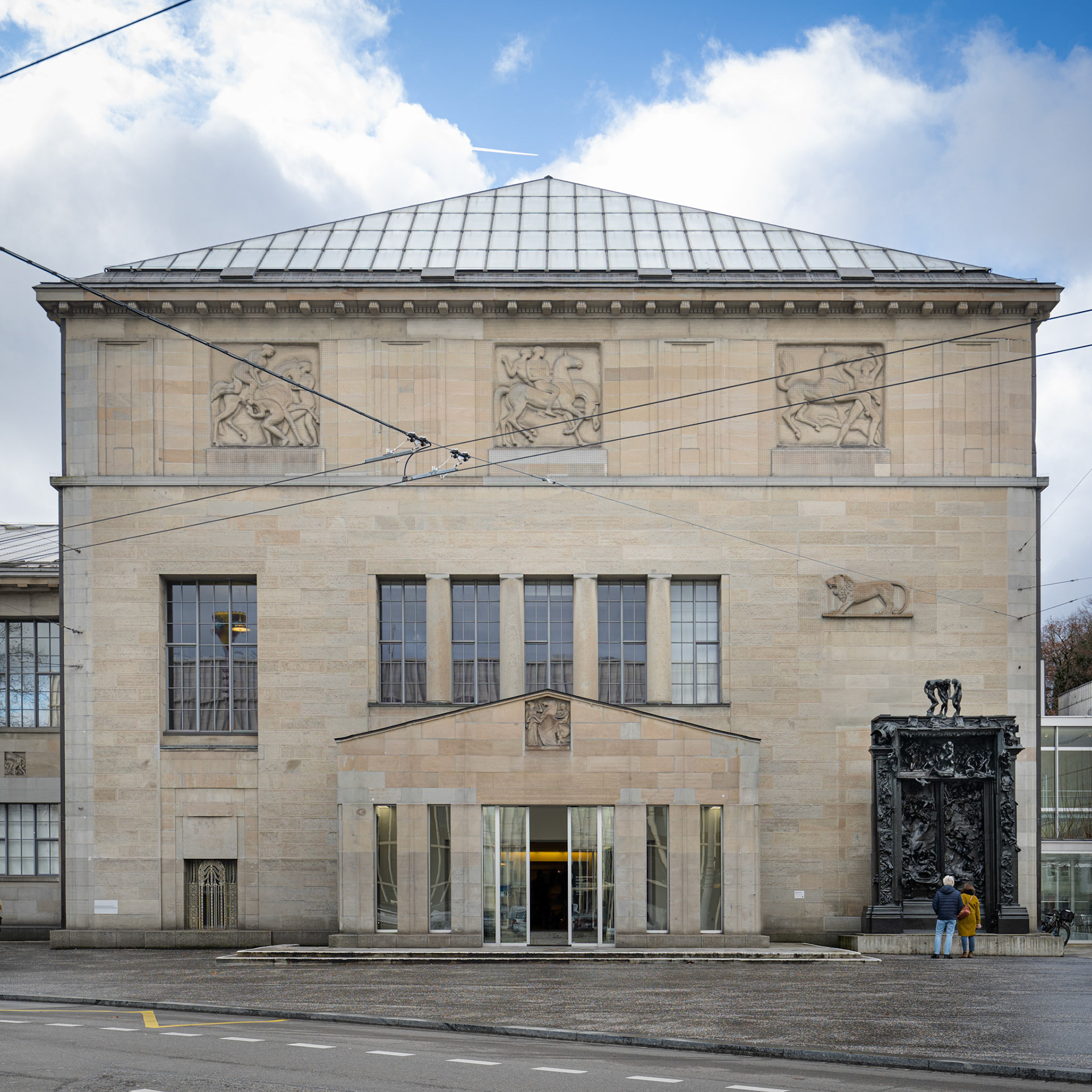
Kunsthaus Zürich - Karl Moser Bau entrance and Porte de l'enfer by Auguste Rodin
David Chipperfield extension
The new freestanding extension building, designed by David Chipperfield Architects, was inaugurated on October 9, 2021. The Kunsthaus Zürich with its four buildings is now Switzerland's largest art museum. The nightly illumination on the museum facade is by Swiss artist Pipilotti Rist.
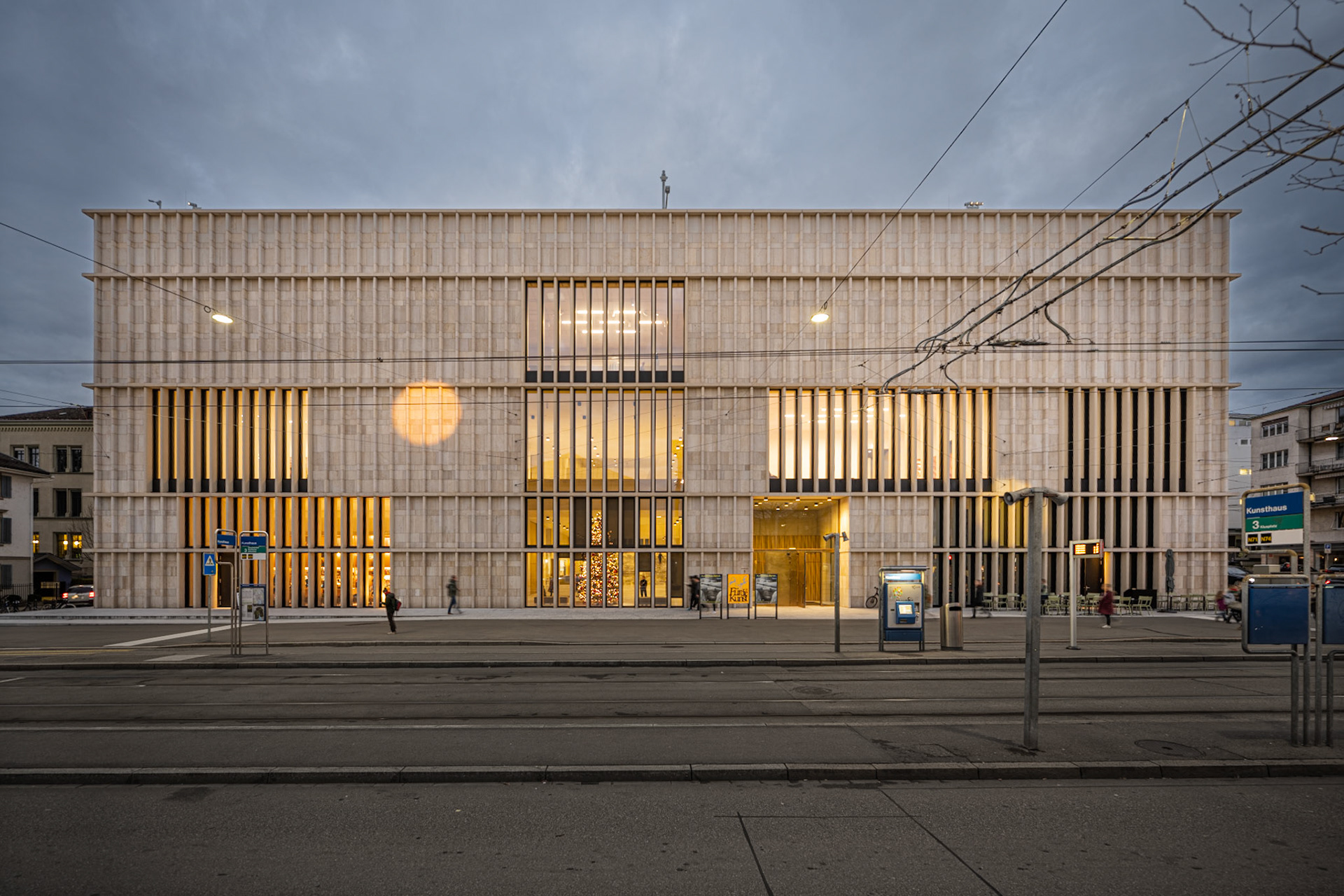
Kunsthaus Zürich - David Chipperfield extension in the early evening
The repeating vertical fins on the museum's facade were created from local Jurassic limestone. On the north side of the building, the Garden of Art can be found.
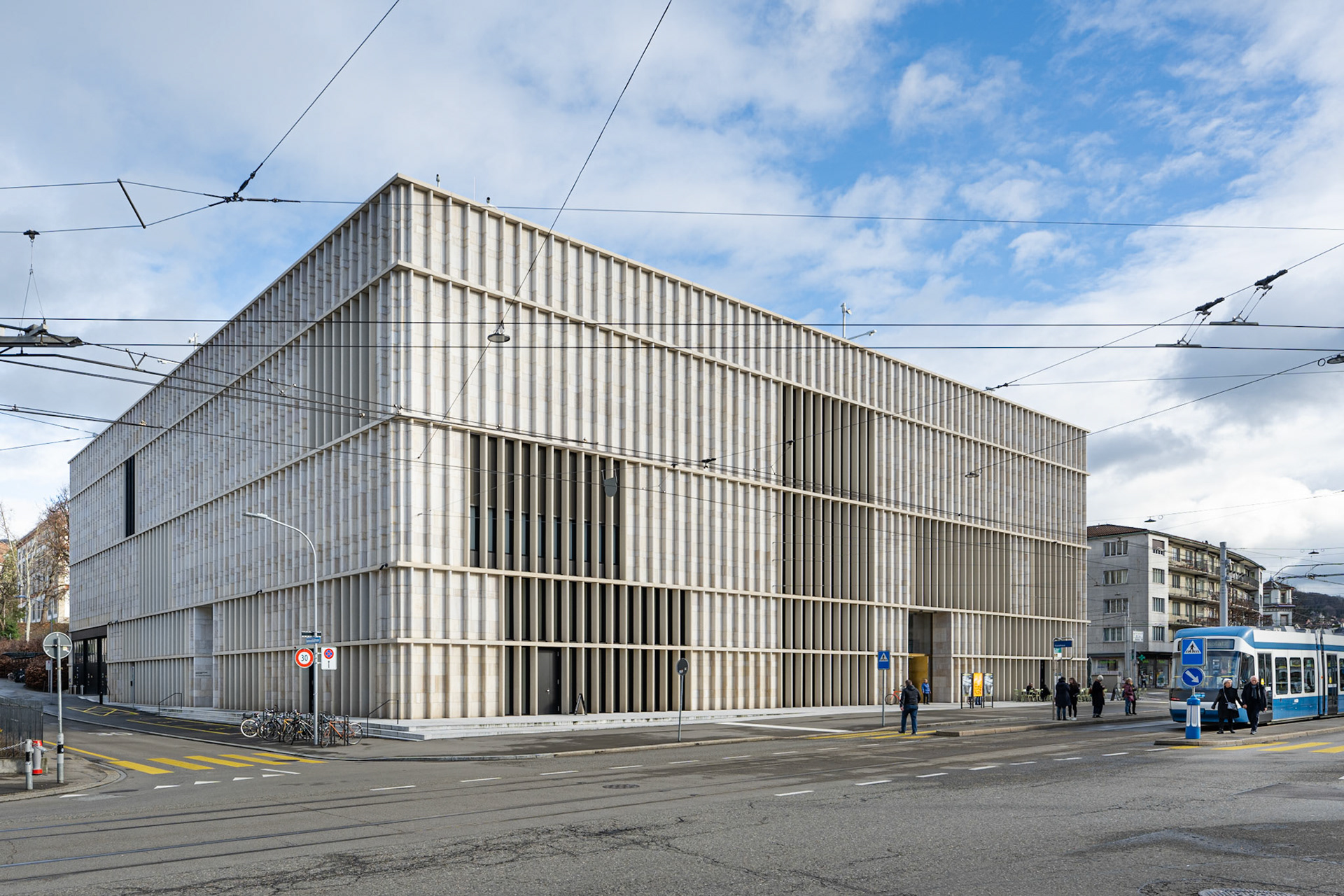
David Chipperfield extension facade
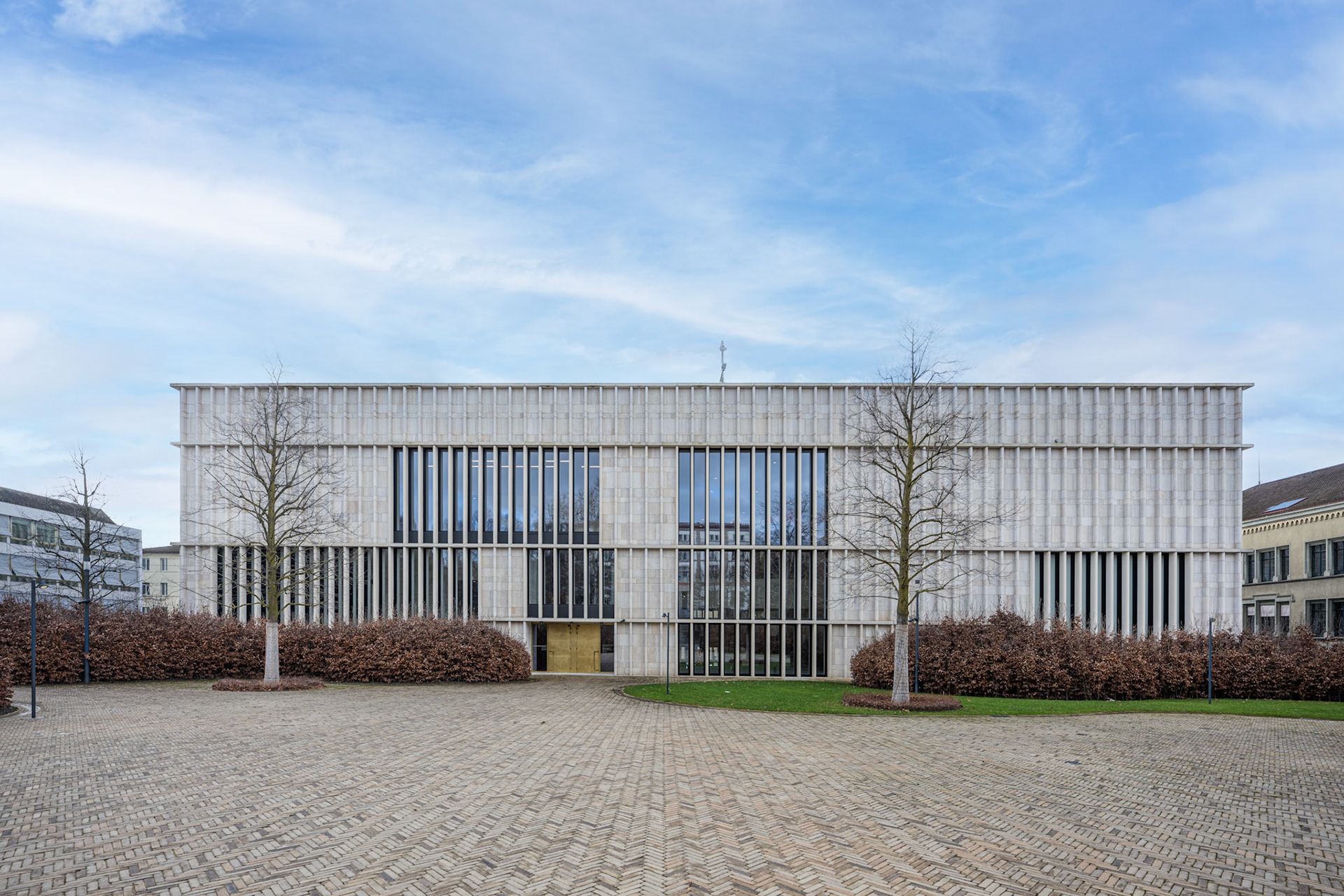
David Chipperfield extension as seen from the Garden of Art
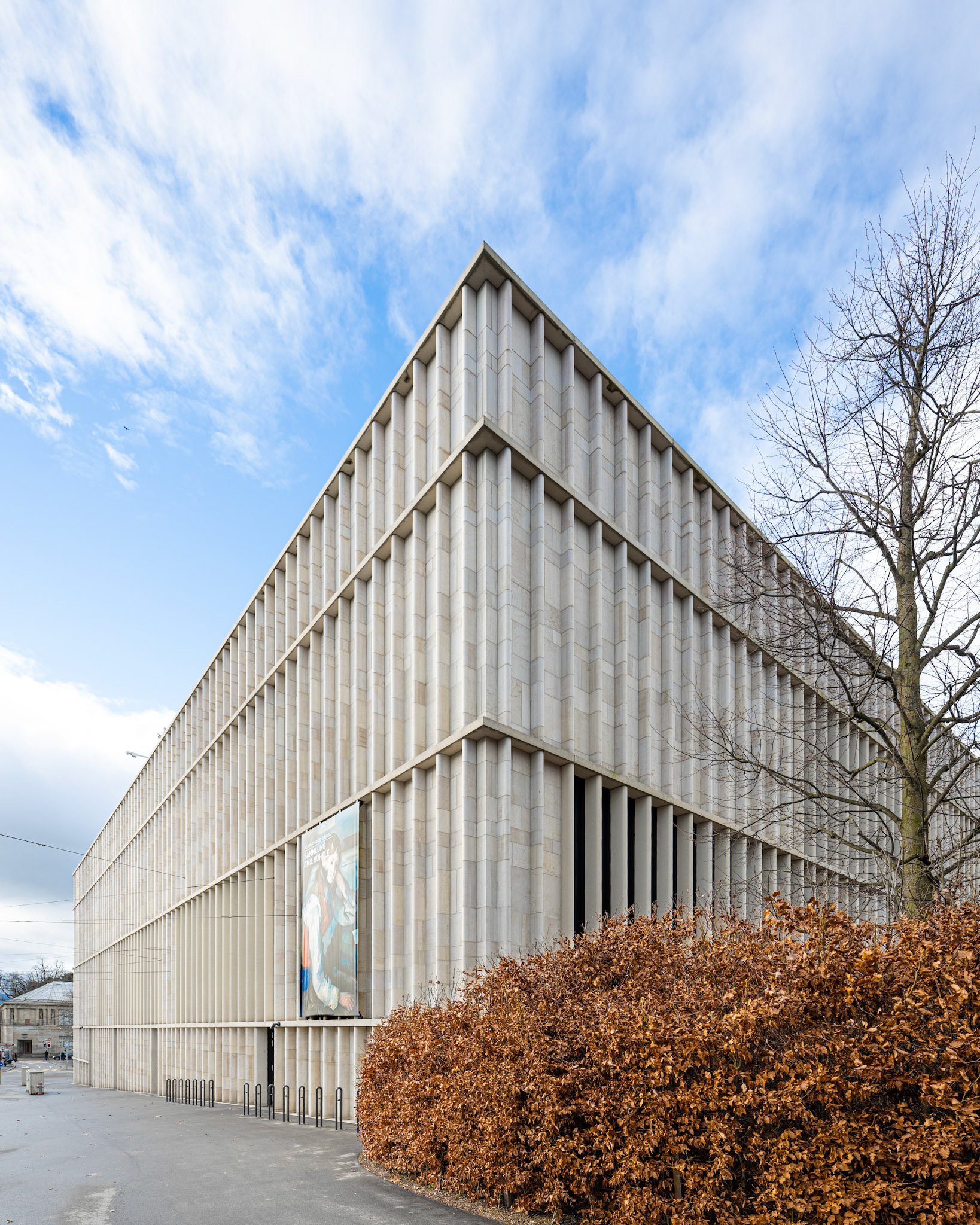
David Chipperfield extension
The entrance hall spans the full length of the building, creating a large public space at its very center. The museum shop, café and event halls can be found here. The main materials used inside the building are exposed concrete, marble, wood and brass.
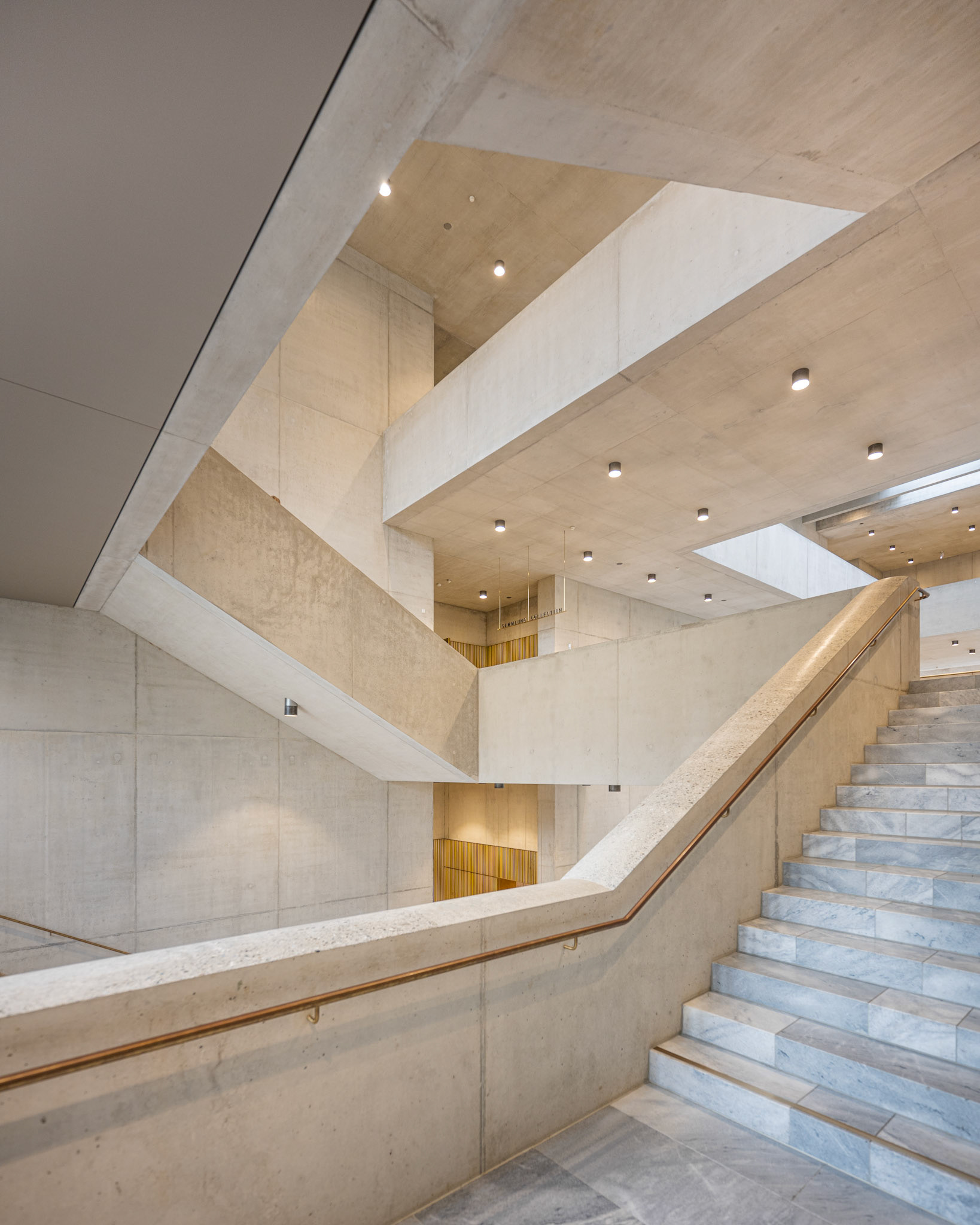
staircase
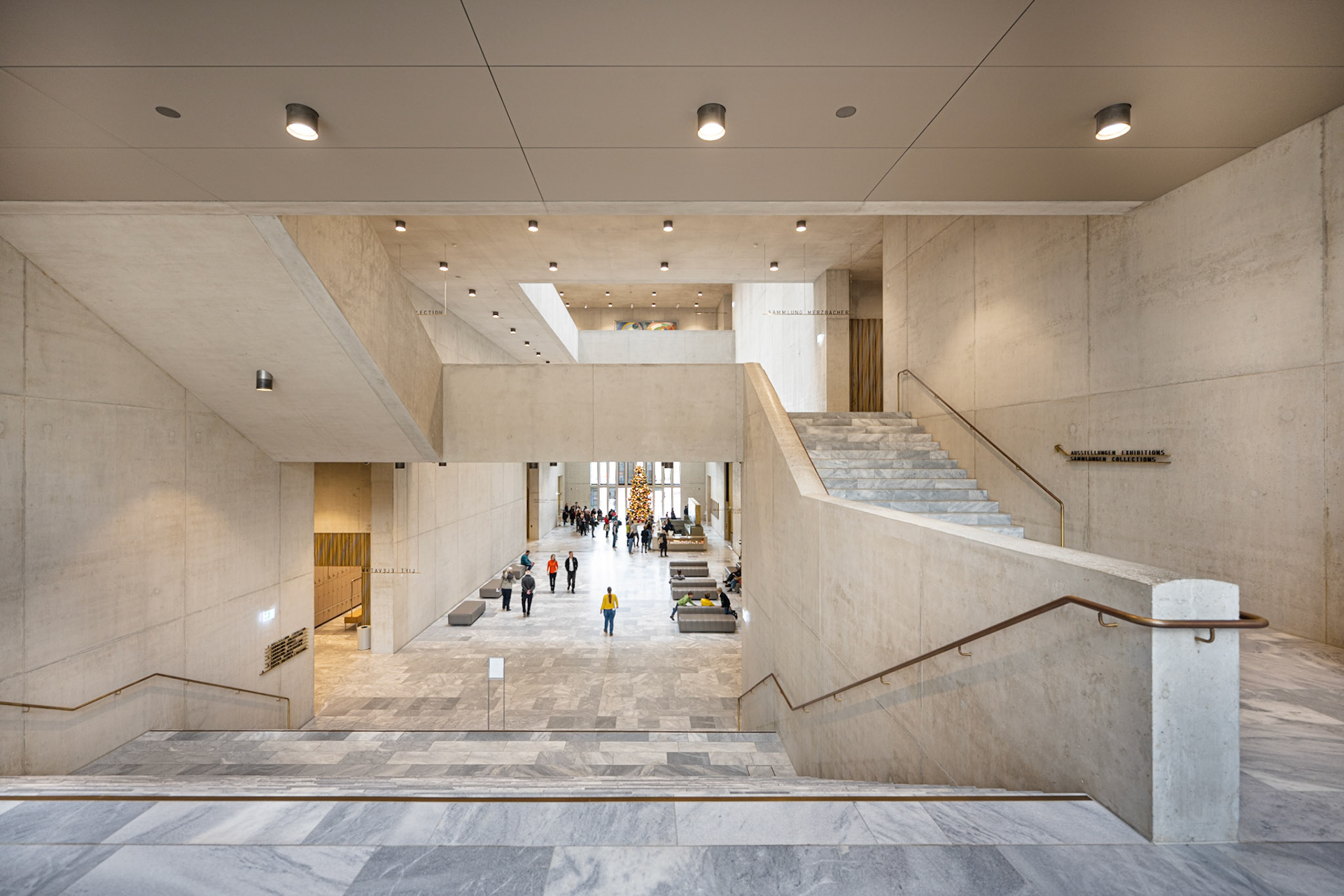
atrium
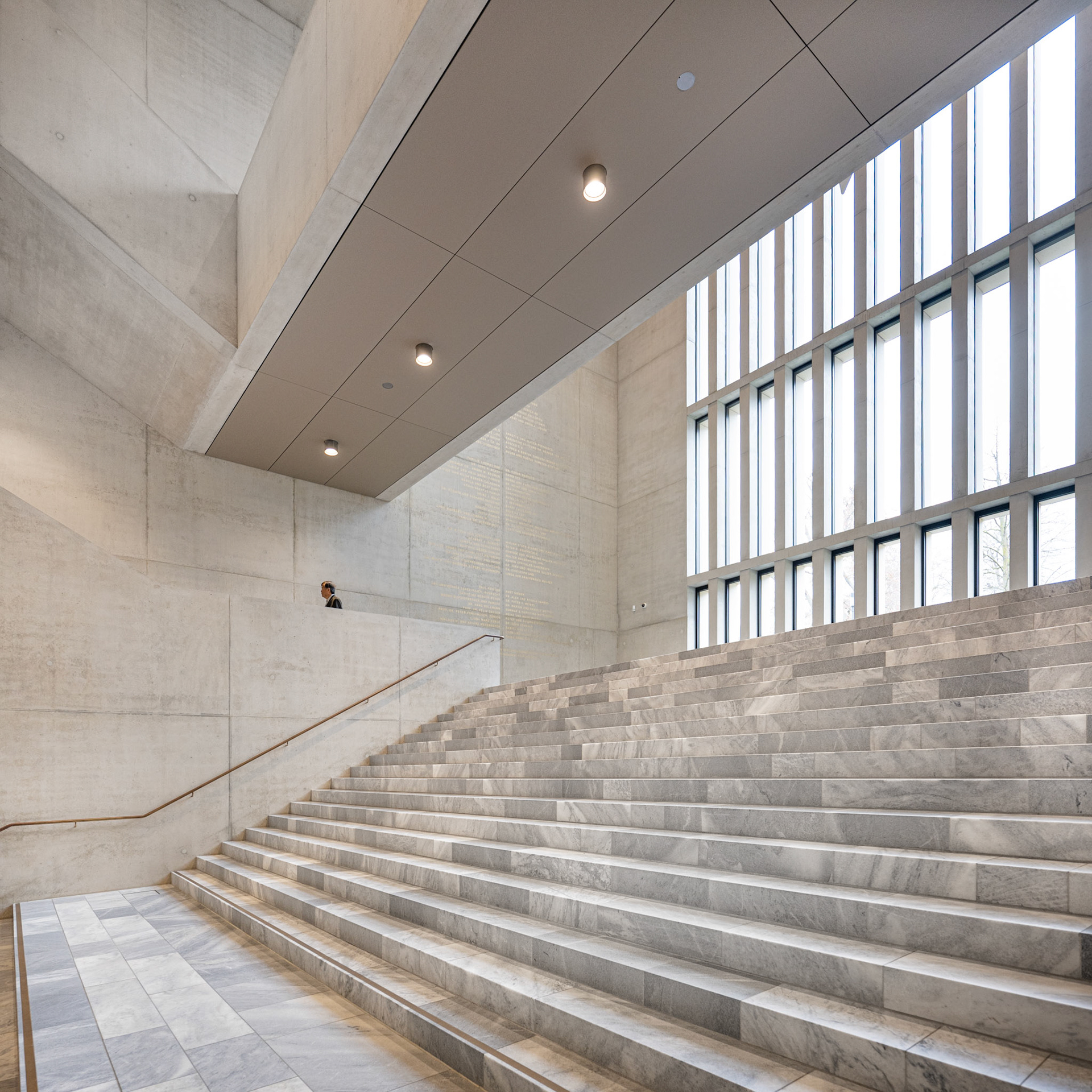
staircase
The exhibition spaces are located on the 2nd and 3rd floor. Many of them use natural daylight, be it through windows or skylights. The Chipperfield extension houses, among others, the Emil Bührle Collection, artworks of the Werner Merzbacher Collection as well as medium-size temporary exhibitions.
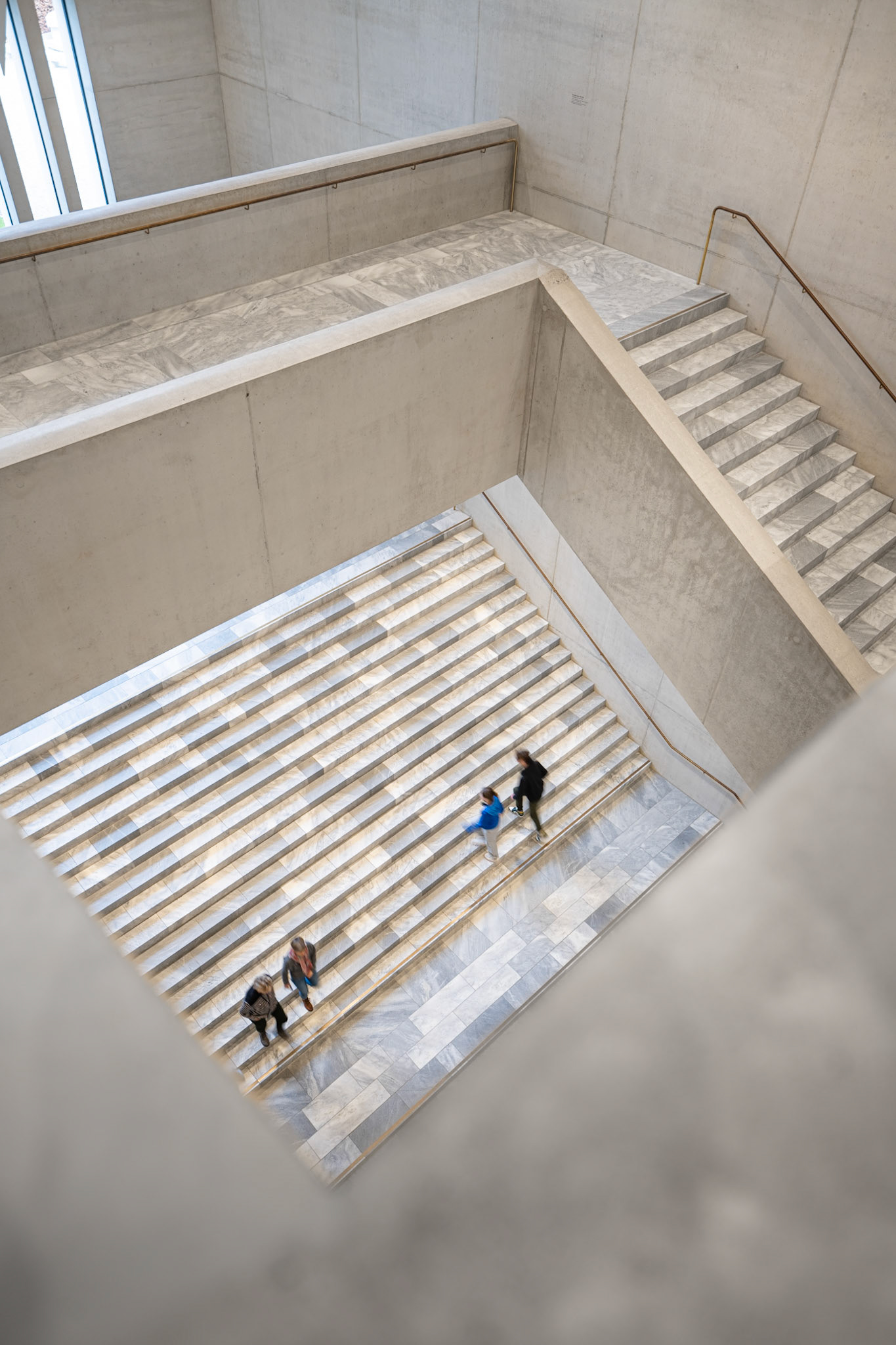
staircase
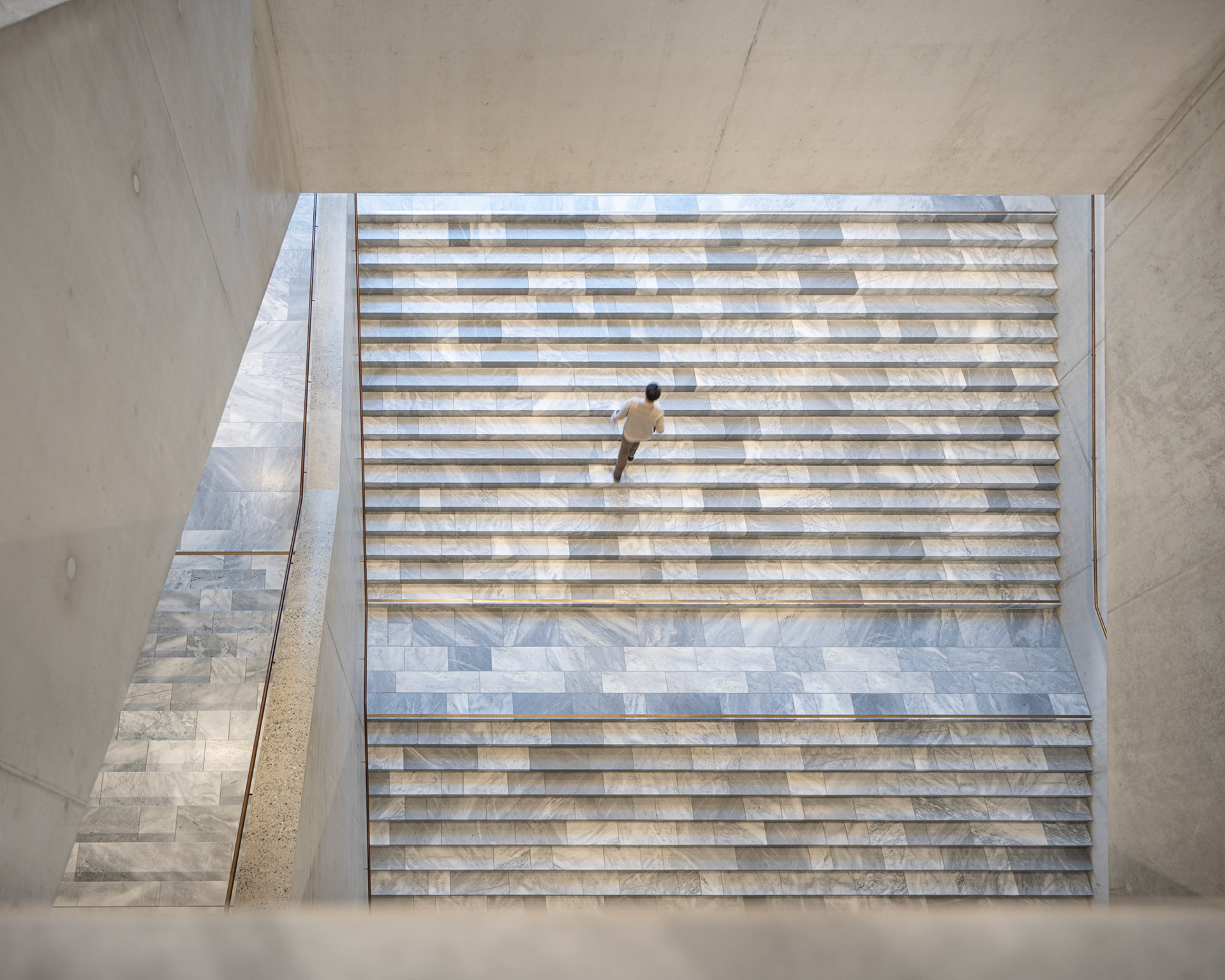
staircase
The new extension building is linked to the Karl Moser Bau through an underground passage. On its ceiling is installed Ólafur Elíasson's "Your submerged spectator" from 2021.
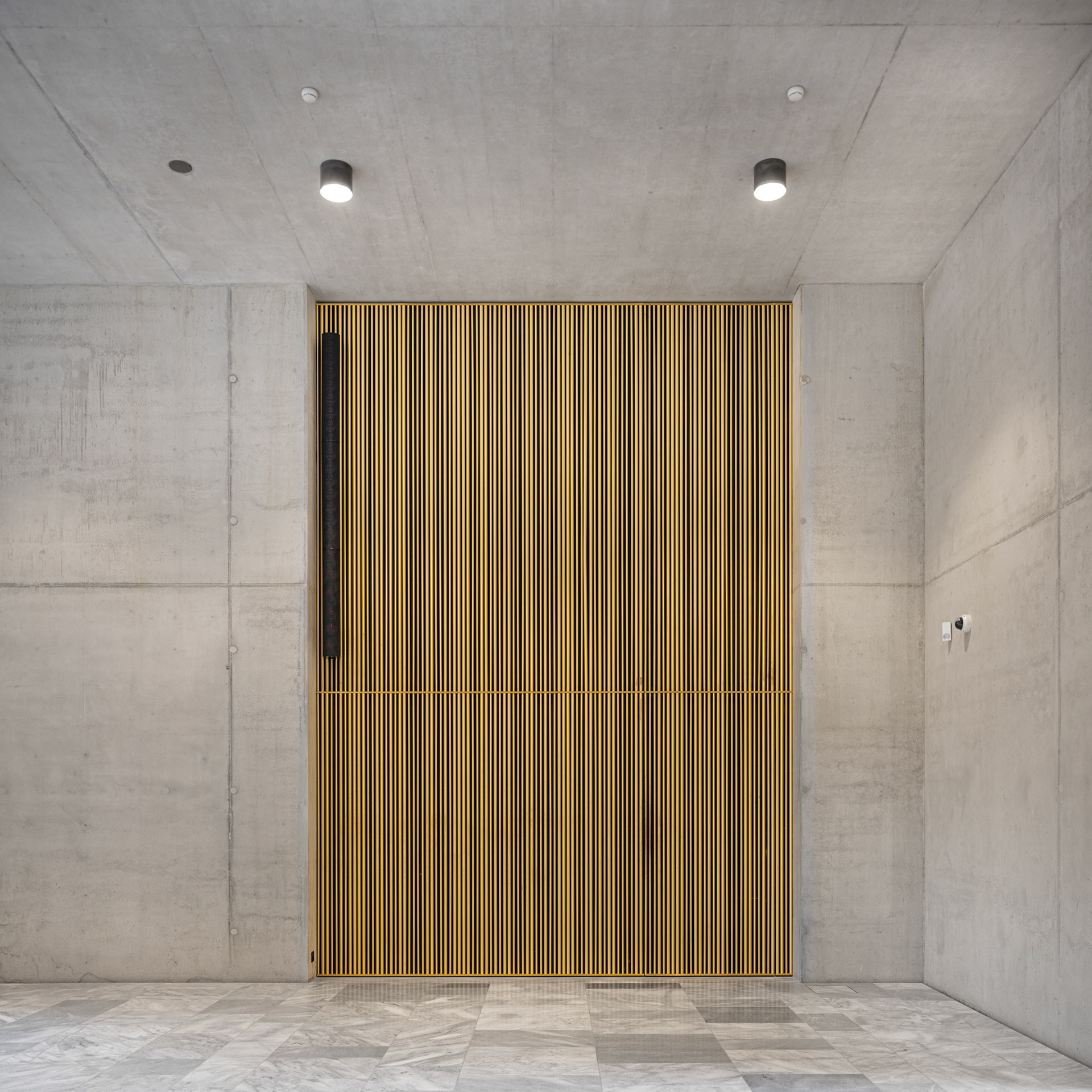
inside the atrium
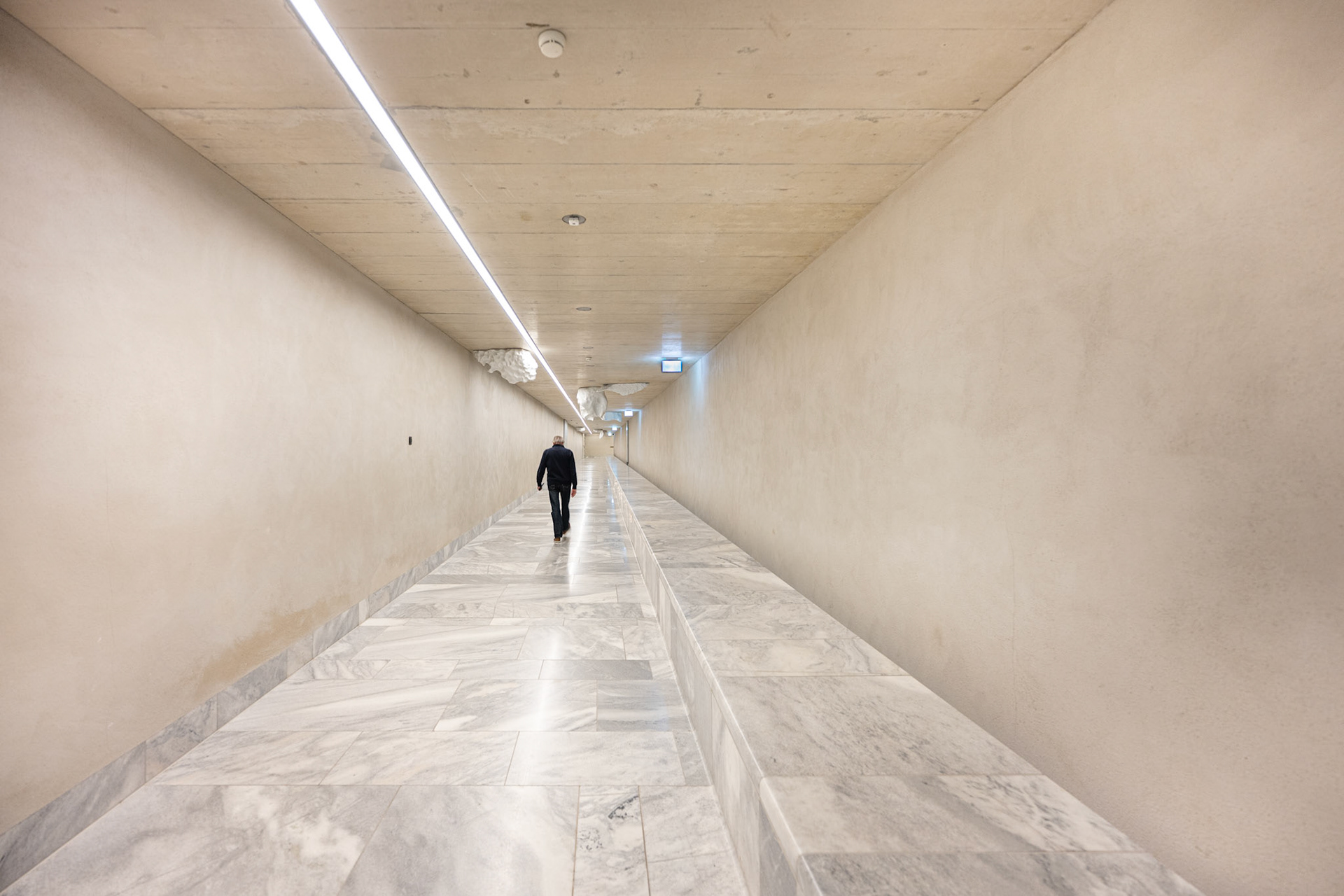
tunnel to the Moser-building
Collection
One of the rooms features three of Claude Monet's famous water lilies: "Le Bassin aux nymphéas avec iris", "Le Bassin aux nymphéas, le soir" and "Le Bassin aux nymphéas, reflets verts", created between 1914 and 1926.
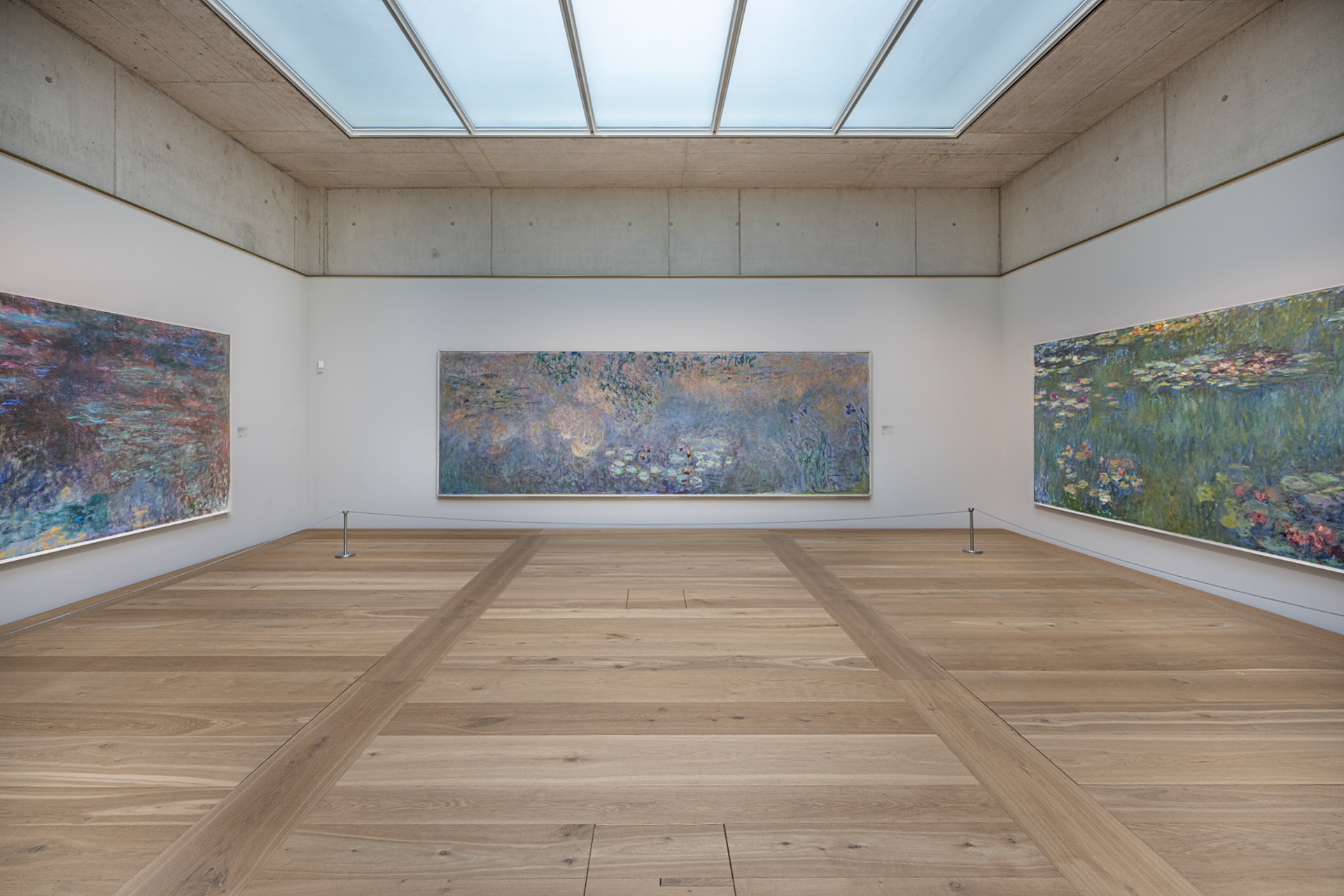
Monet's water lilies: "Le Bassin aux nymphéas avec iris", "Le Bassin aux nymphéas, le soir" and "Le Bassin aux nymphéas, reflets verts"
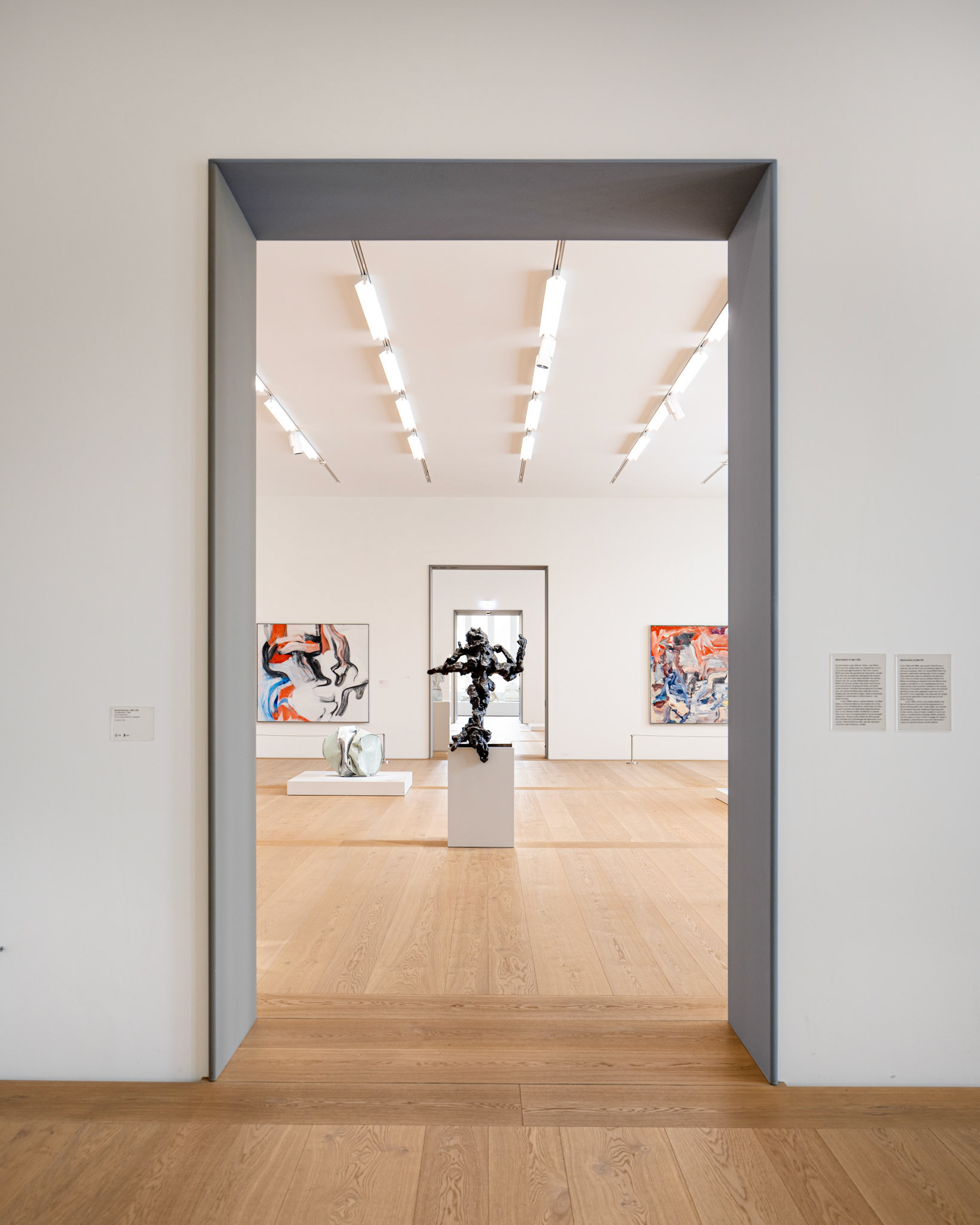
exhibition room
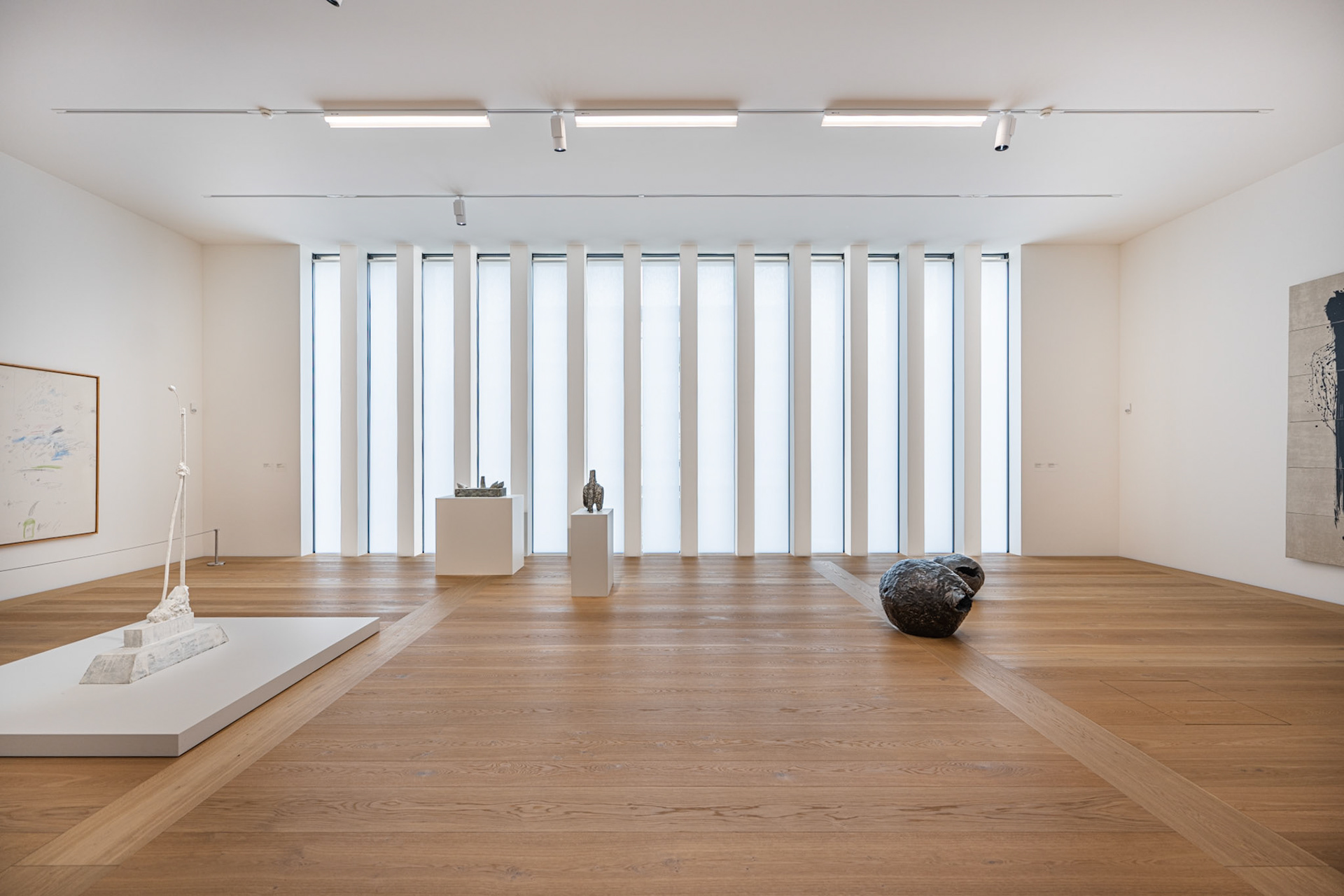
exhibition room
The contemporary artwork "Pixel forest" by Swiss artist Pipilotti Rist's is stunning. It combines music with the every changing illumination of 3000 LEDs.
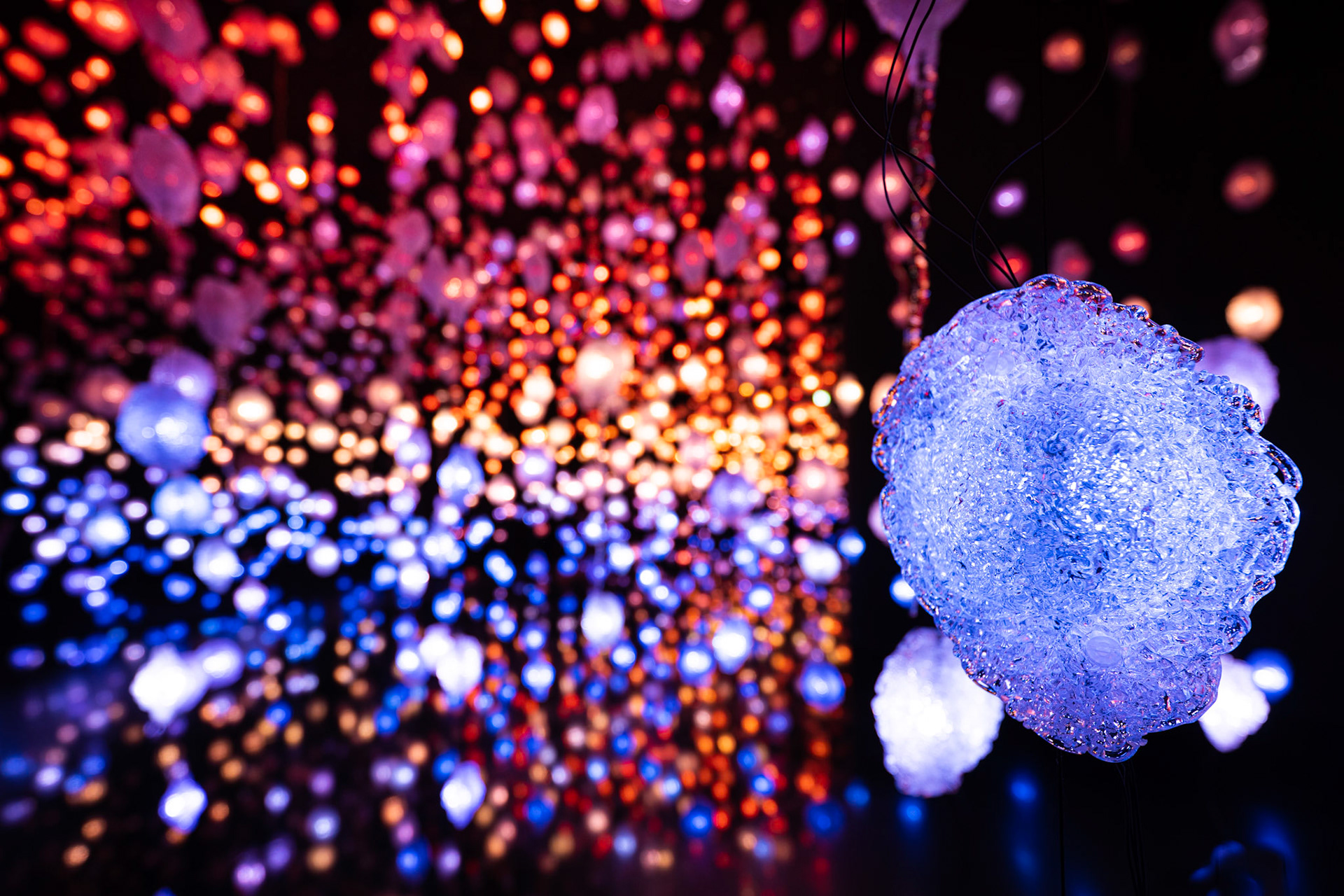
Pixel Forest by Pipilotti Rist
Past Exhibitions
Niki de Saint Phalle
2022-09-02 - 2023-01-08
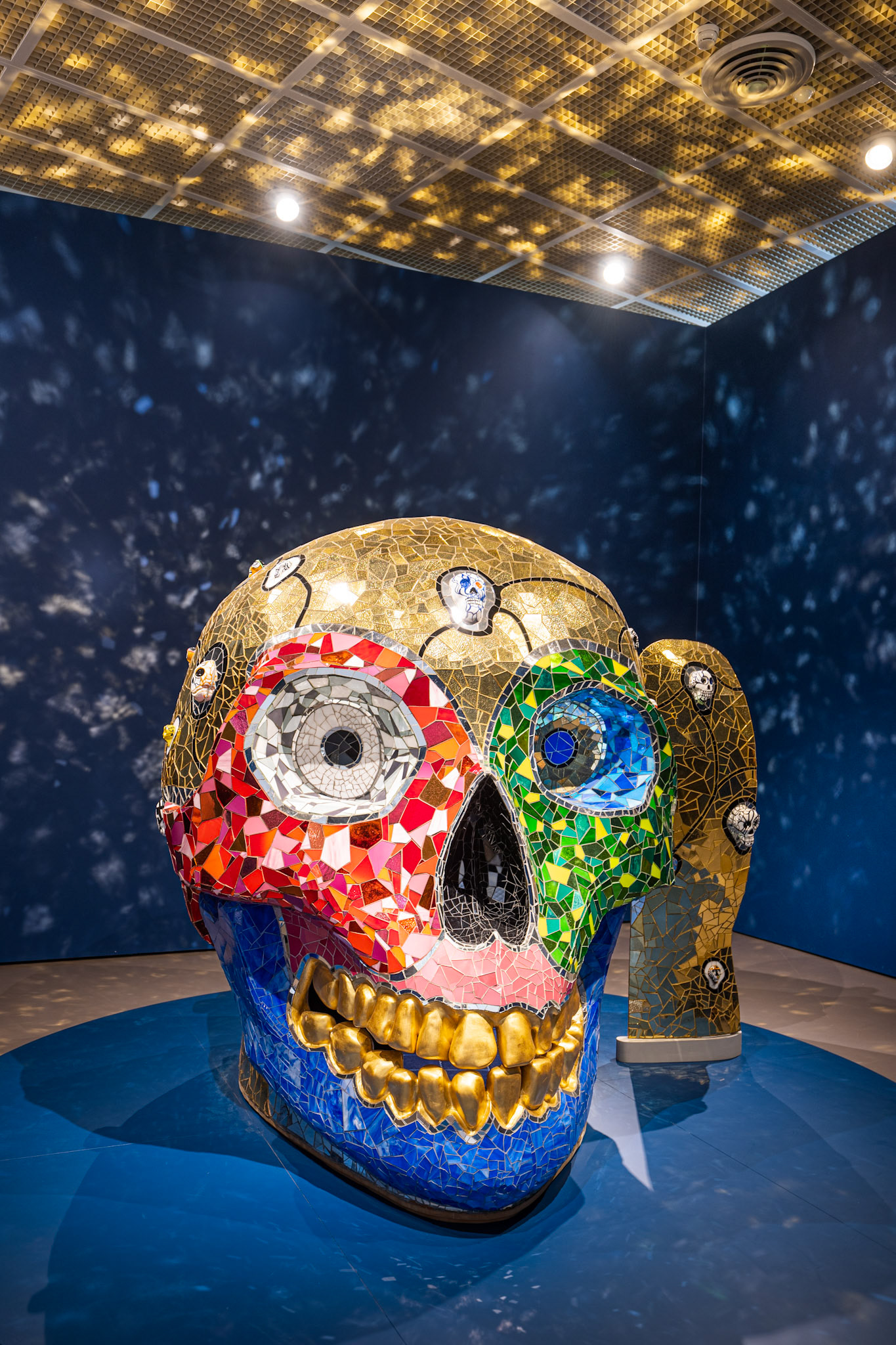
Skull - Meditation Room, Niki de Saint Phalle, 1990
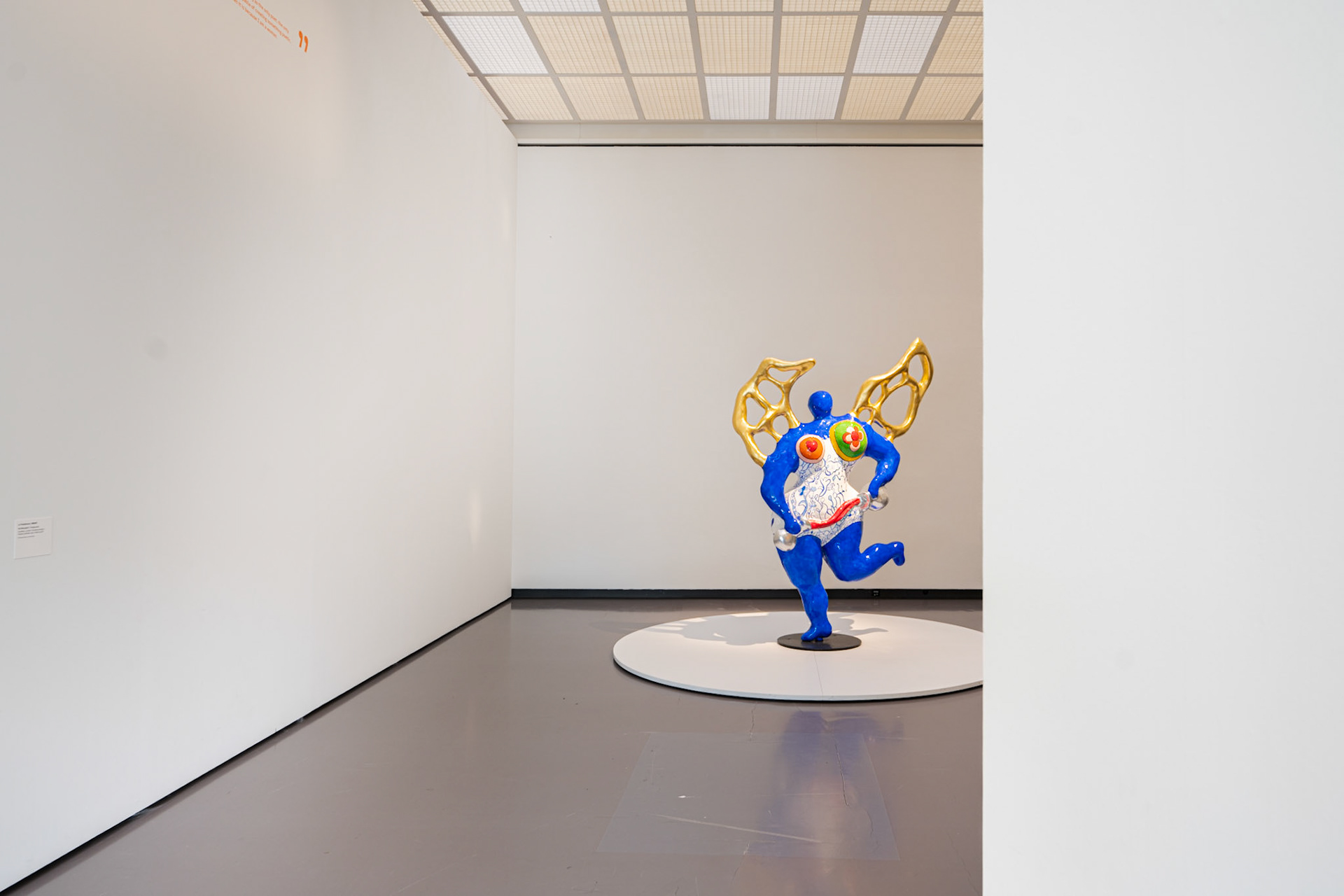
La Tempérance, Niki de Saint Phalle, 1982
You may also like